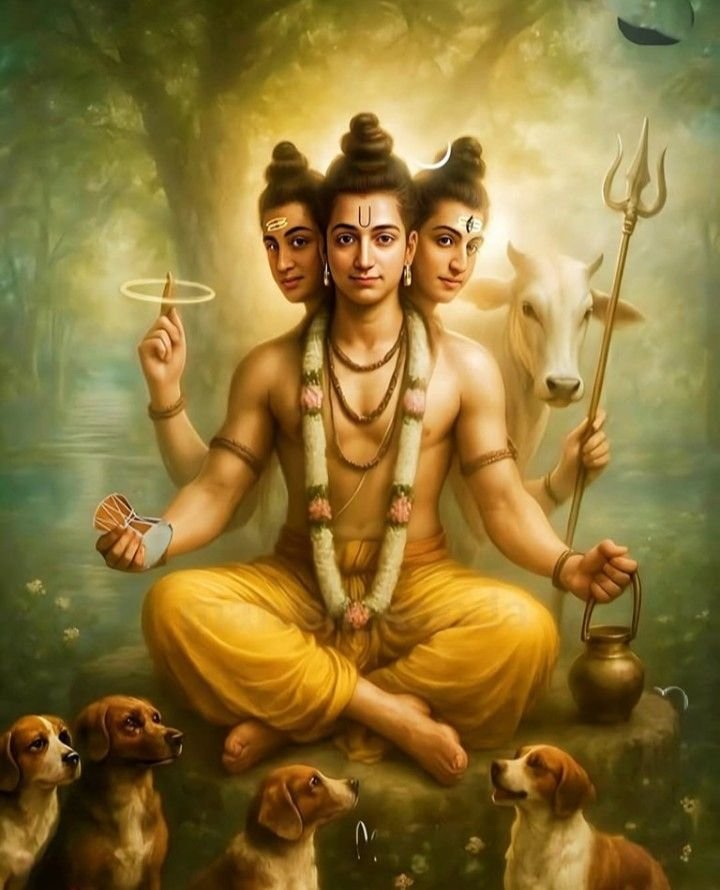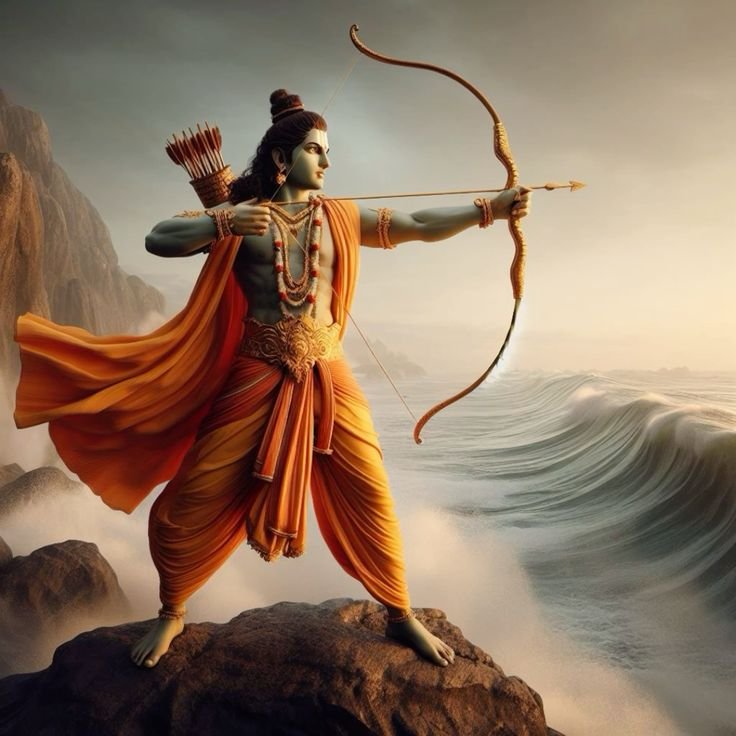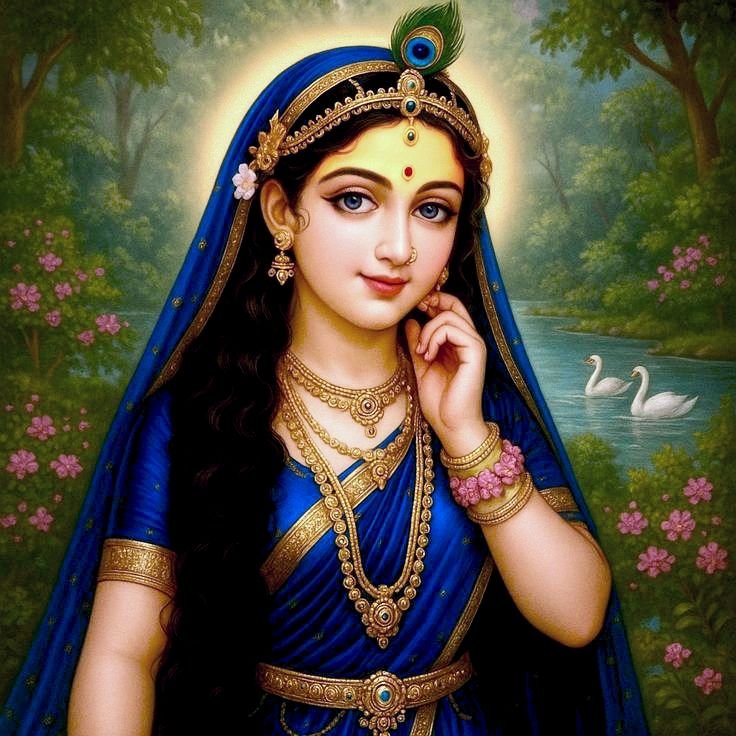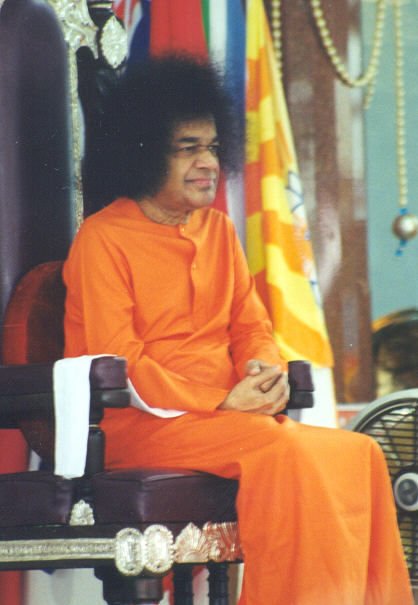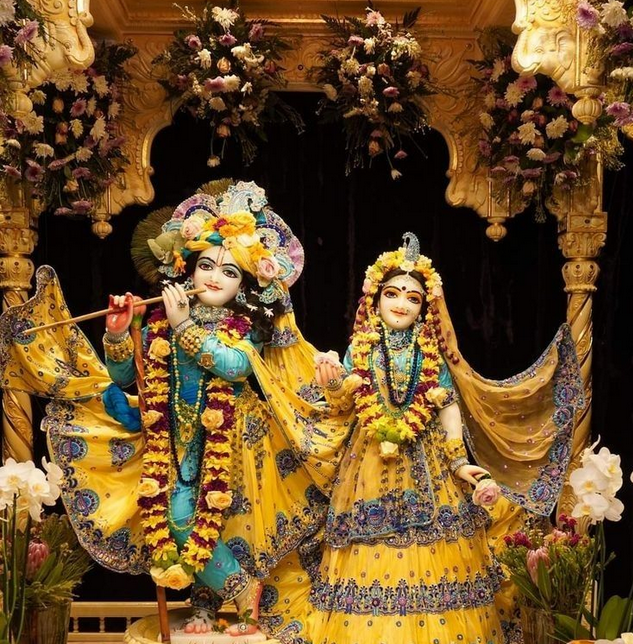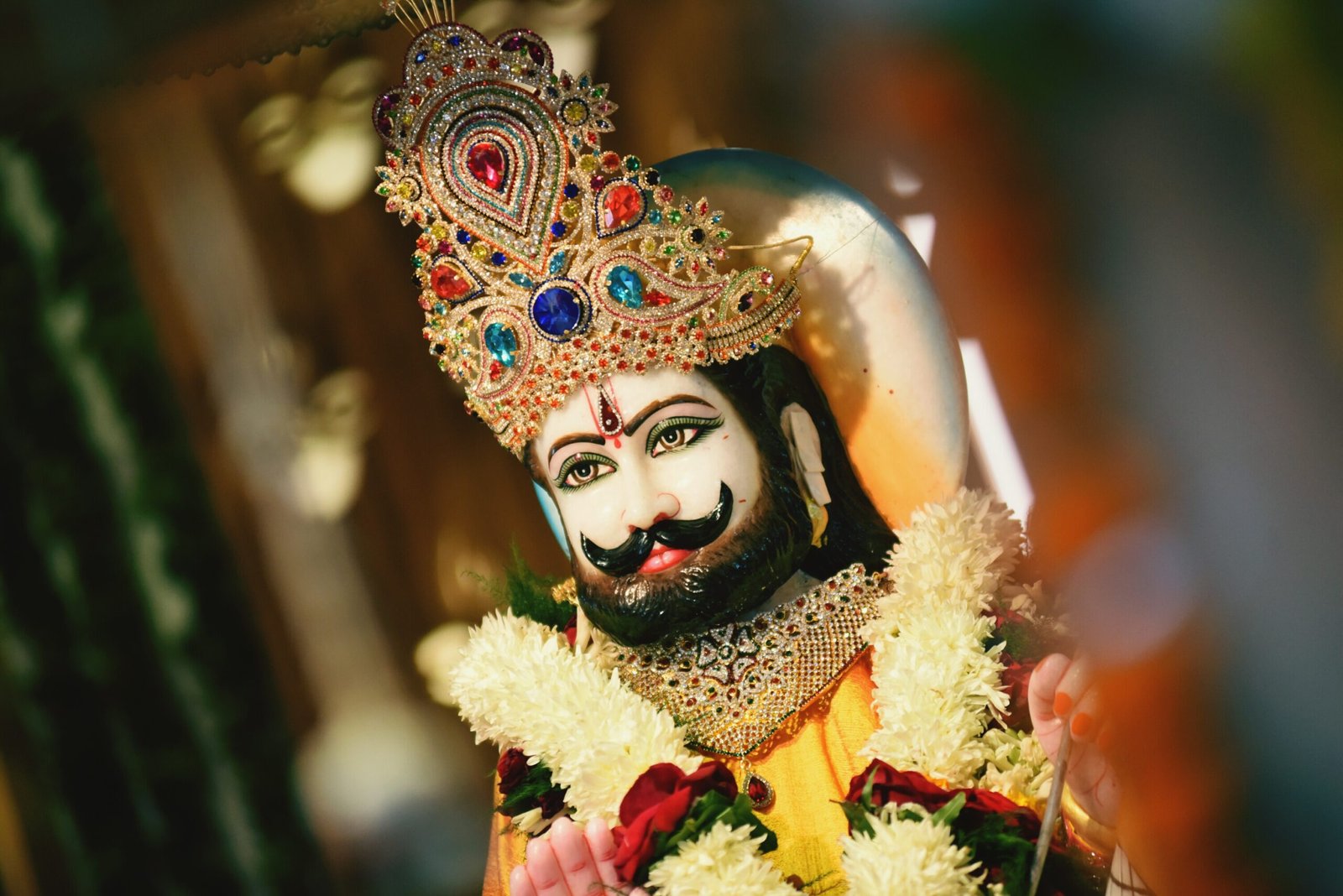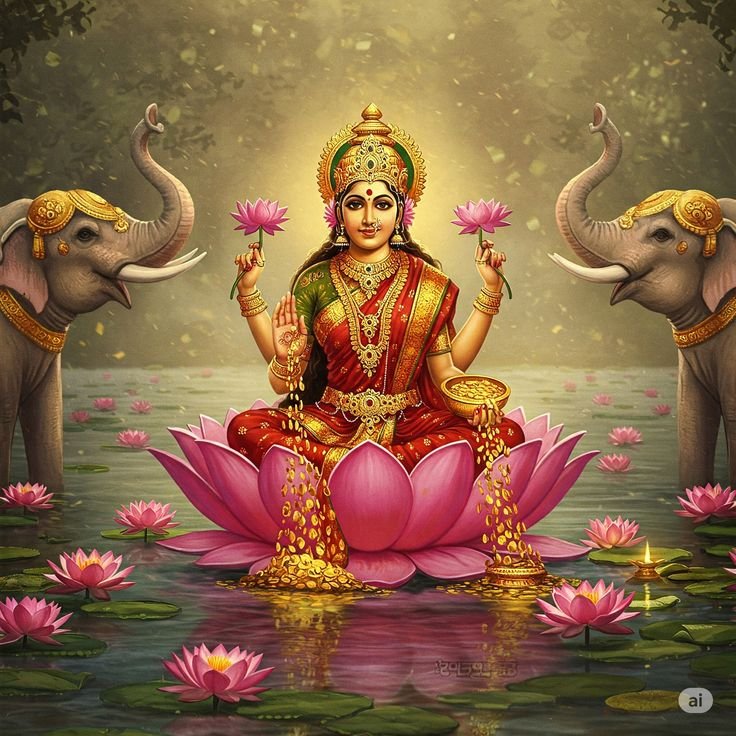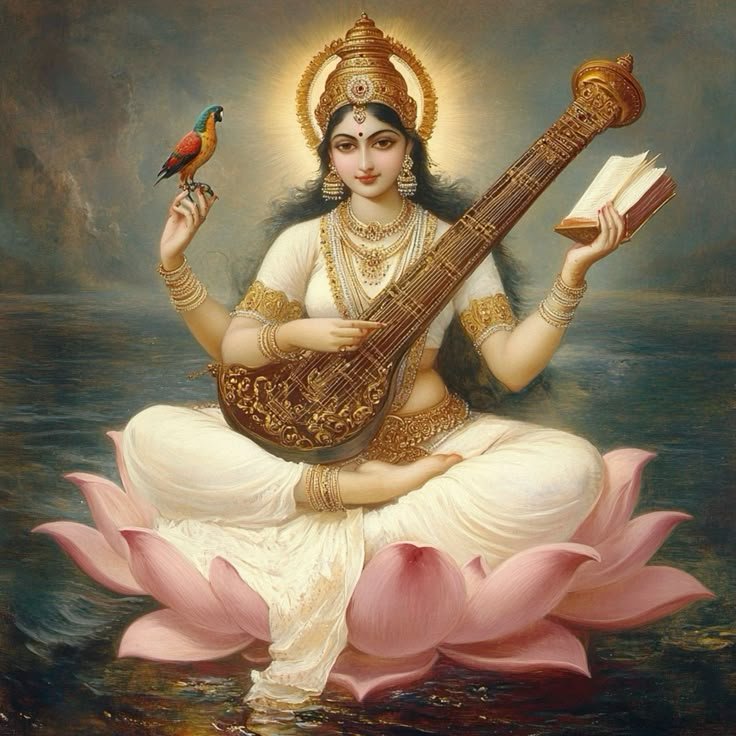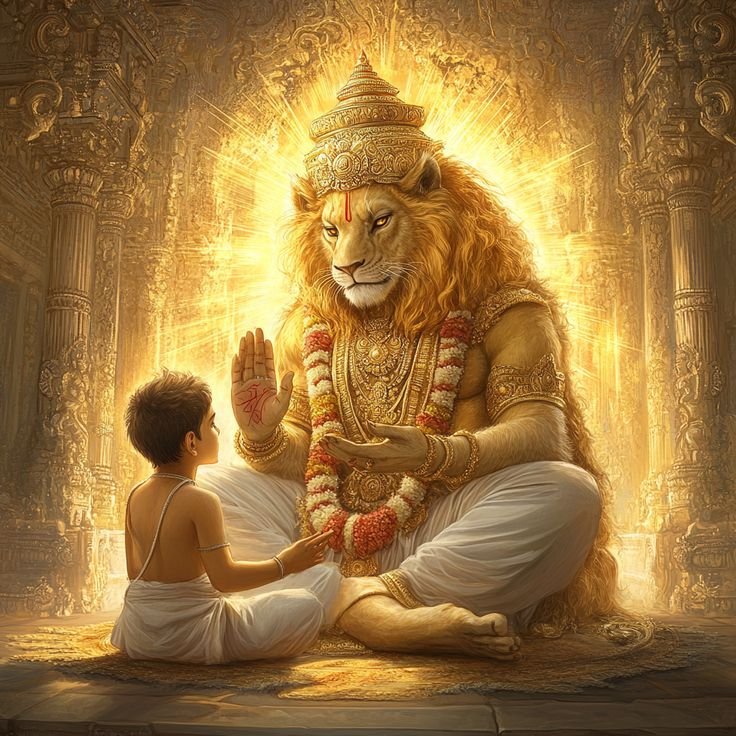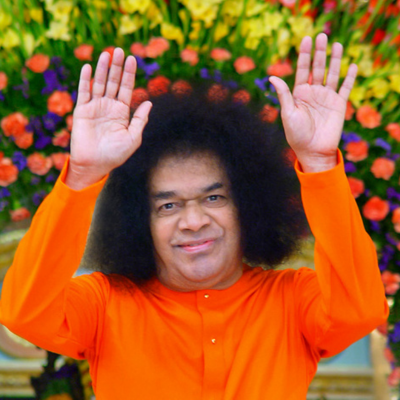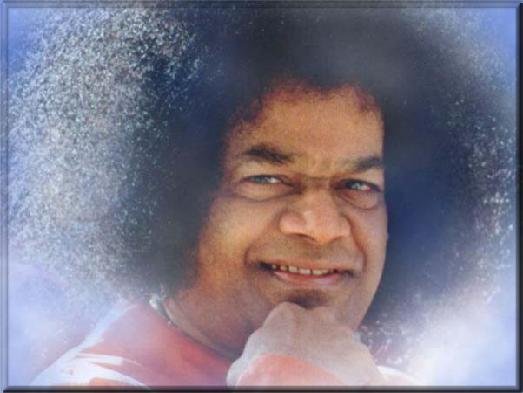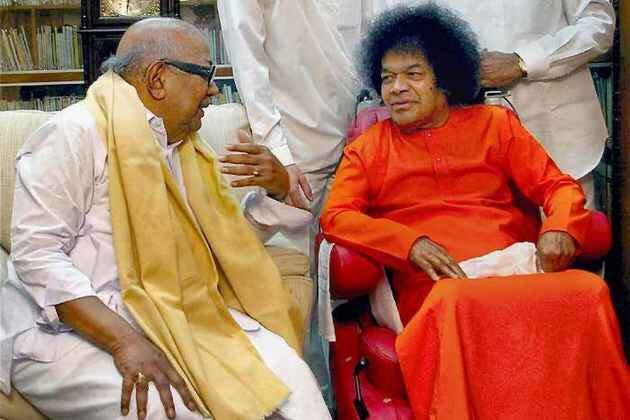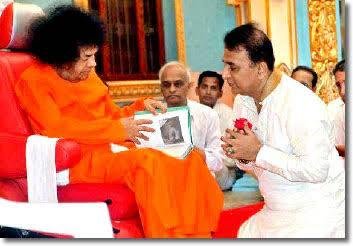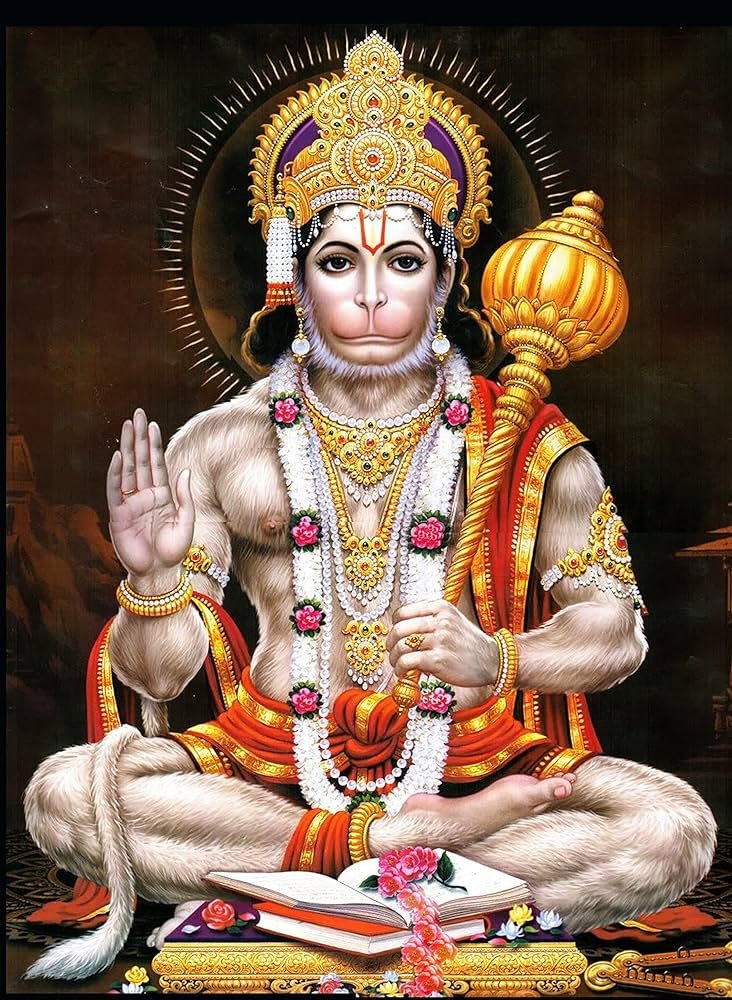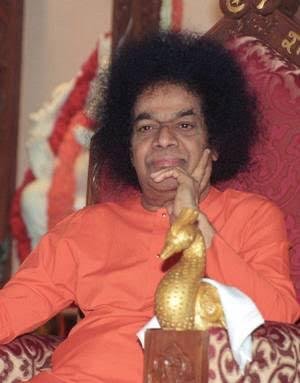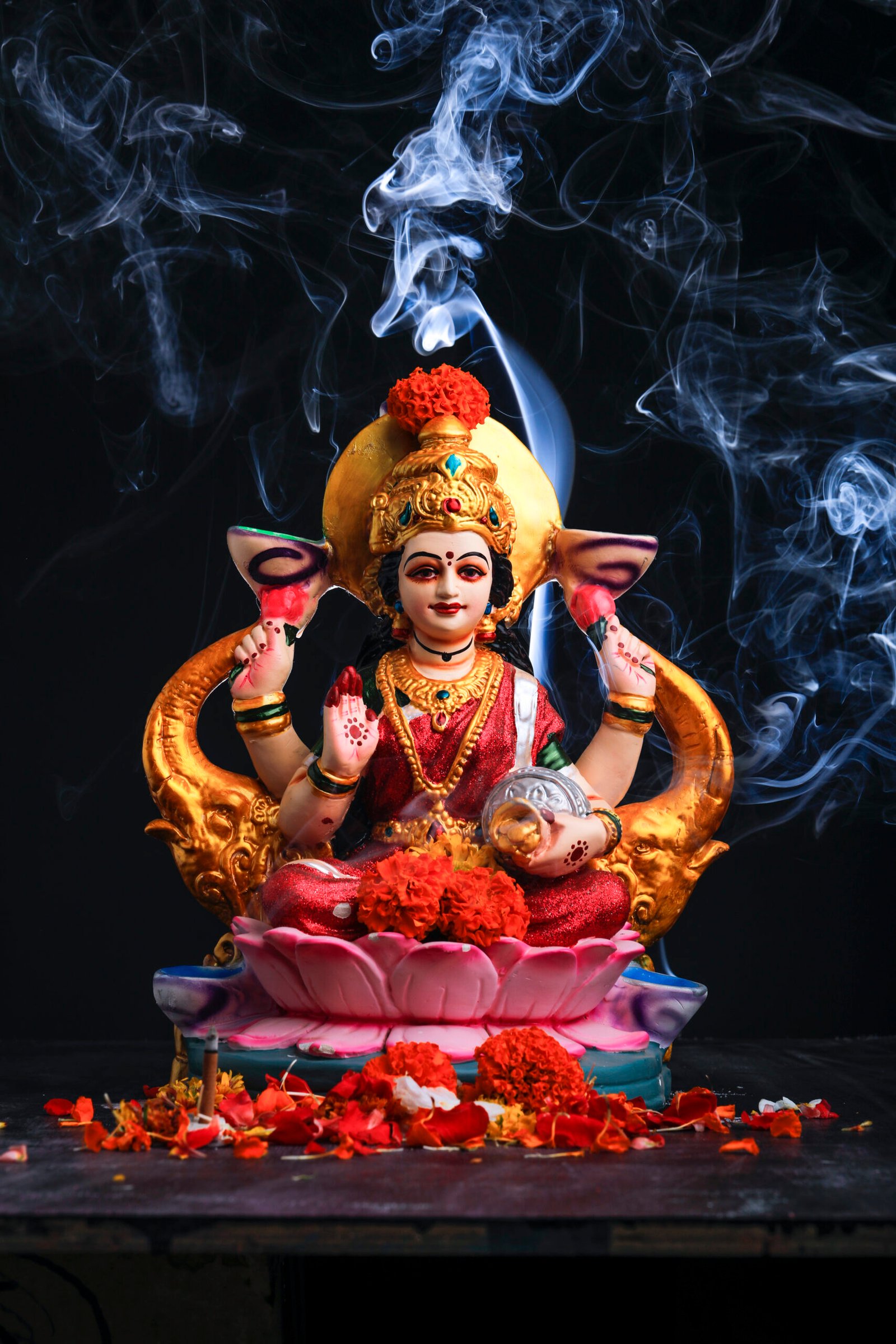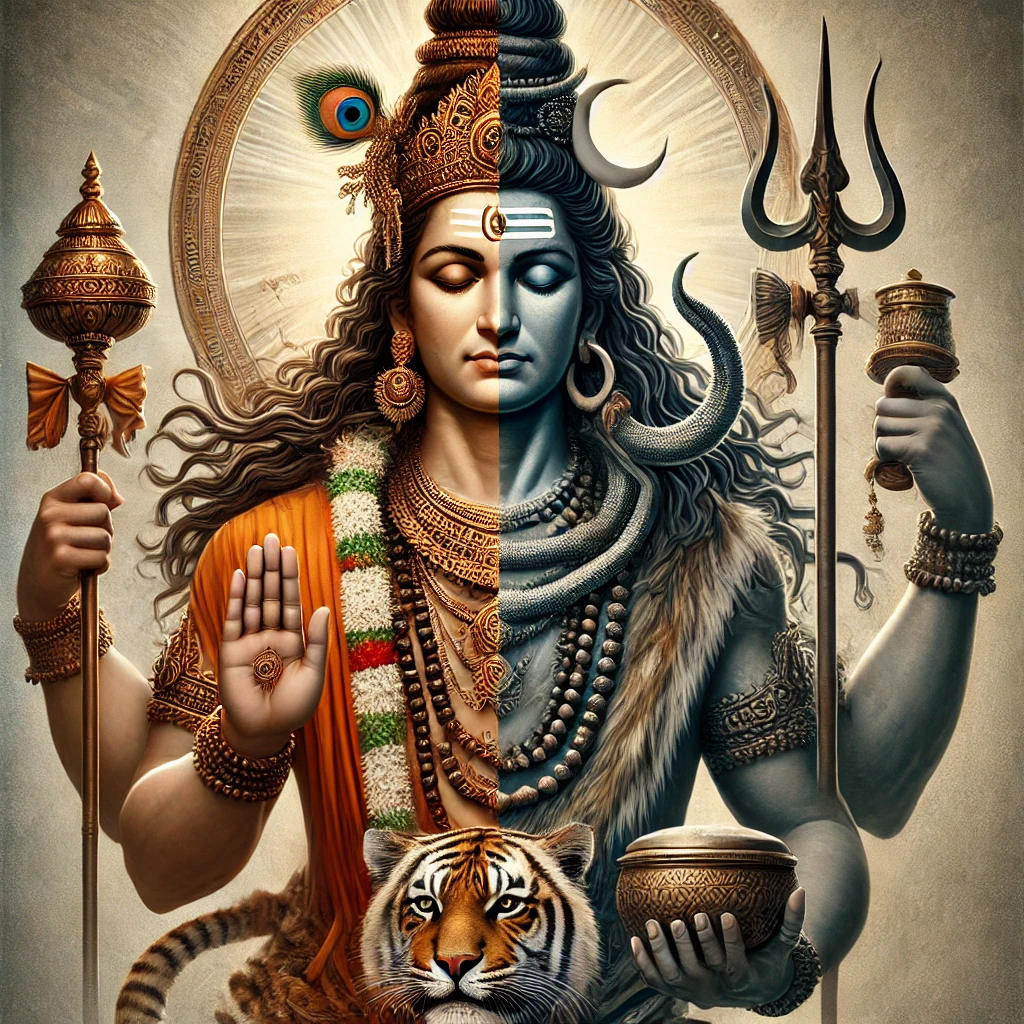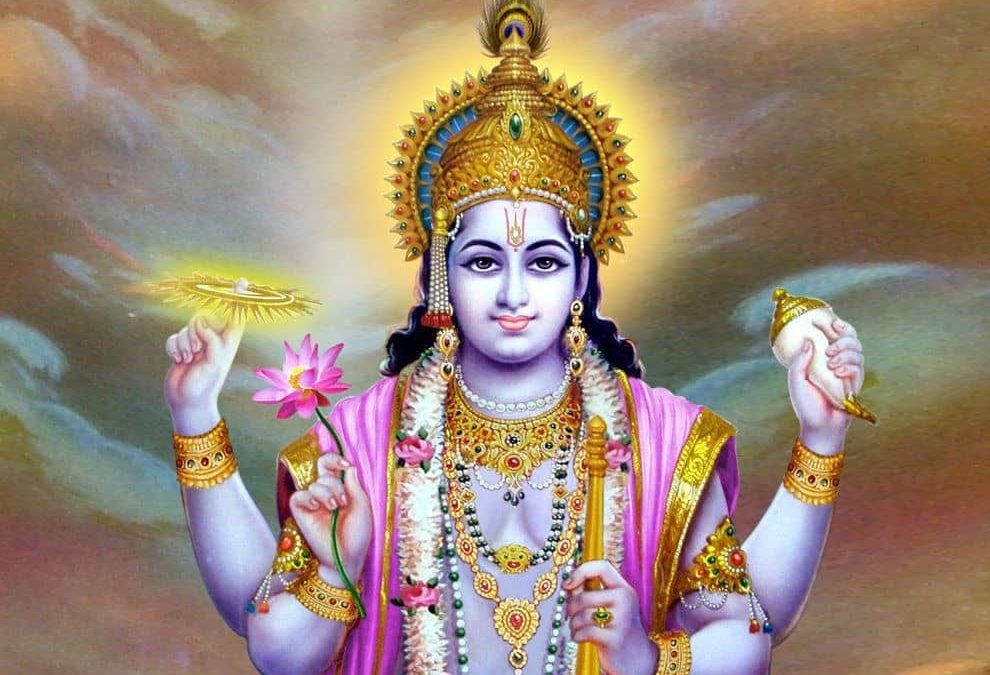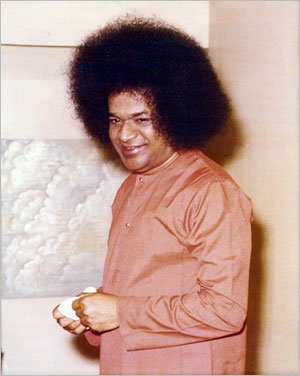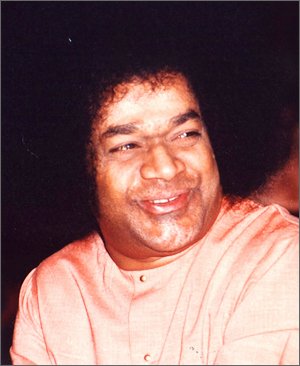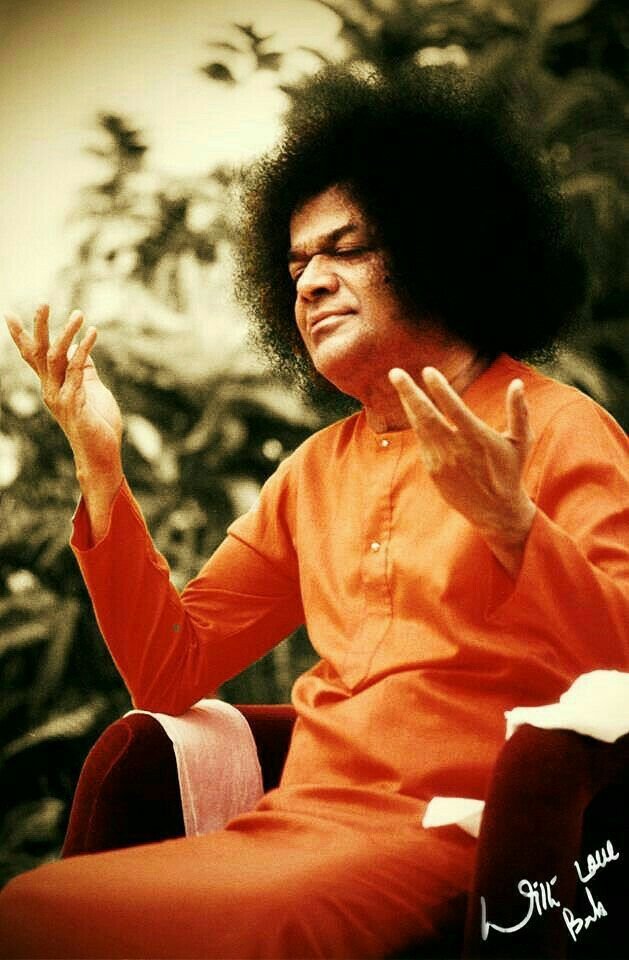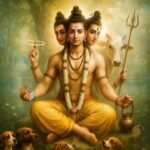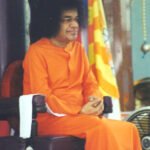CONVERSATIONS WITH SAI – Part Eighteen
CONVERSATIONS WITH SAI – Part Eighteen
H (HISLOP):┬ĀWhat did Baba mean about the spiritual rays that comprise a human being, being projected into the vastness, instead of the
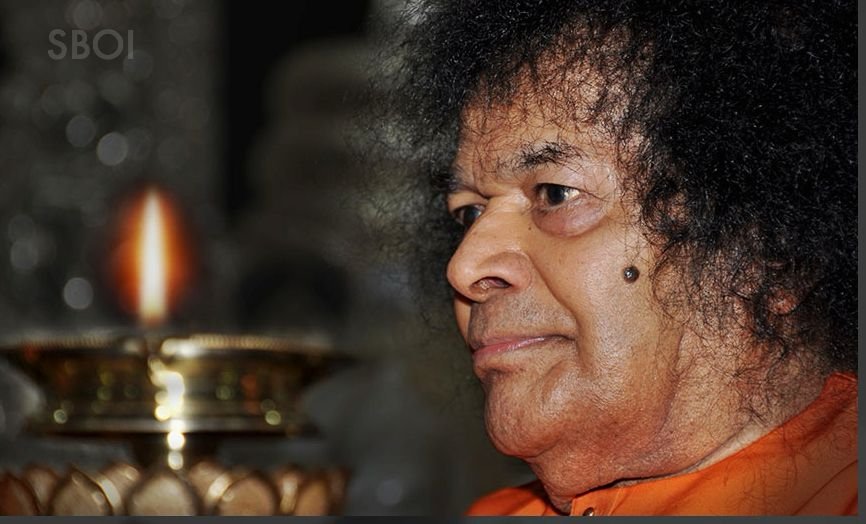
SAI:┬ĀWhen the world melts away, when there is bliss or even when there is a temporary feeling of happiness, hold to that state and stay with it, and do not allow yourself to fall back into ego, emotions and thoughts. From man comes a series of spiritual rays whose quality is delight and bliss. All man need do is to manifest that bliss. The idea of search is an error. Everyone already knows the truth. All that is needed is to put that truth into practice and to manifest it. The humanity of man is just these spiritual rays of delight. It is very easy to crush a flower, or t owink an eye; Self-realization is as easy as that.
BE HAPPY
H:┬ĀSwami said that it is man’s duty to be happy.
SAI:┬ĀHappiness is essential for God-realization. It is one of the major gates to divinity. It is not just a fault if a person is not happy; it is one of the most serious of all faults. It is a barrier to Realization. Mostly, people are unhappy because of worldly pursuits, attachments, enjoyments. Too much interested in the world. To get free of this fault, a person has to be told of the seriousness of the fault.┬ĀHe should realise that desire is never-ending, like the waves of the sea.
H:┬ĀSwami says that pleasure or happiness is the interval between two sorrows. What is the implication?
THE CAUSE OF SORROW
SAI:┬ĀPleasure is an interval between two sorrows. Remove the sorrow and only pleasure, and delight remain. But nobody troubles to find the cause of sorrow. It is like the lady who went to look for a lost needle under the street lamp because there was no light in the house where she had lost the article. The house is lit by the light of wisdom. The lost item must be found where it was lost.┬ĀActually, sorrow and pain are caused by desire. The cure is to use that same desire and turn it to God, to desire God.┬ĀInstantly, suffering will cease because the cause, turning from God to worldly desire, has been eliminated. The incidents that caused sorrow will cease to cause sorrow. If a person called ‘my’ suffers, there is a direct pain in oneself. But if one’s desire is for God only, that pain will cease.
H:┬ĀBut one suffers also because of the pain he is aware of in another.

SAI:┬ĀThe suffering one feels for other people whom one sees suffering, is from imagination. That sympathetic suffering will leave, but the sympathy remains. Compassion is when love is mobile and flows. Personal love is when love is not mobile but remains fixed on husband, wife, child, etc. Devotion is that free mobile flow of love to God.
CAUTION WITH OVER FAMILIARITY
H:┬ĀLast night, in speaking to the students, Swami said something very puzzling, that another person’s sins would pass to oneself through the touch of that person’s skin.
SAI:┬ĀFor that reason it is that some Swamis will not allow devotees to touch the feet. Since one cannot be sure who is bad and who is good, it is best to refrain from touching.
A Visitor:┬ĀIs that why Indians greet people by that kind of salute, instead of by much handshaking as is done in the West?
SAI:┬ĀNo. That is not the reason.
H:┬ĀDoes Swami mean that if I touch a person, I then commit sin in the same way as he?
H:┬ĀI gave Swami a ring created by a yogi. I did not want wear it and I didn’t know what to do with it. That is, I sent it up to Swami by a messenger with a note about it.
SAI:┬ĀThat was another attempt aimed at you by other interests. You are known as a devotee to Baba, and it was an attempt to interest you elsewhere. Like that western city matter. You should reject such attempts out-of-hand.
H:┬ĀBut that man from there said Swami stayed at his house.
SAI:┬ĀNot true. That area is strongly Communist. At one time Baba did bring about genuine evidence of His┬ĀSankalpa┬Āthere, but ego and money-making arose, so Baba stopped things. Again He allowed it, and now He has again stopped it. Those people, in fear of loss of reputation, are now doing things by tricks.
H:┬ĀThe man seemed a very nice fellow.
CHALLENGES WITH EVERY AVATAR
Not long ago, there was a man who challenged Swami to some tests. Stories appeared over a broad area, even in other countries. This man had some foreign people in his camp. Some of Swami’s devotees urged Him to reply. But to reply would have been shameful. This yogi was eating nails and glass and so on. He created a special tank for a test of water walking. Why a special tank? Something crooked. He sold tickets to spectators for up to 100 rupees and more per ticket. On the appointed day he stepped on the water and sank in the water. The police had to put him in a cell to protect him from abuse, and all the money was refunded. Now, people said, what a fool he had been to challenge Swami. His disaster was a result of the foolish challenge. Later, the man wrote to Swami disclaiming any serious intent to challenge, and confessed that he had used Swami’s name just to increase ticket sales. The man is gone and now nothing is heard about him.

H:┬ĀBut Swami, why would the man be so foolish as to try to walk on water without practice beforehand?
SAI:┬ĀThe man was walking on water. But ego and greed arose, and that finished it. Thought, word, and deed must be the same.
H:┬ĀIn the car en route to Anantapur, an American who was teaching at the Sathya Sai College at Brindavan said, ŌĆśSwami, I feel guilty at leaving my classes.ŌĆÖ
SAI:┬ĀDuty in the world carries no force or weight when God calls. God is the goal of life. When in His company, there is no duty. When He is absent on tour, etc., then duty comes into full play, because duty is God.
THE COMPOSITION OF MAN
H:┬ĀWhen I am absent from Swami’s physical person and far away in America, I know of His actual Presence by the jasmine perfume. Someone said it was smelled by the smell-sense of the subtle body, is this correct?
SAI:┬ĀNo. Senses are in the physical body. Subtle body does not have senses. The perfume is known by the physical senses.
H:┬ĀDoes man have three bodies?
SAI:┬ĀYes. Body, Mind and Soul. Physical body, subtle body and causal body. On death, the physical and subtle bodies disintegrate, but the causal body remains.
H:┬ĀHow about the five┬Ākosas, the five sheaths?
SAI:┬ĀThe food sheath, life sheath and mind sheath are impermanent. The intelligence sheath and bliss sheath remain. The body is mud. Out of the mud everything grows. Only the body dies. Life and all the senses merge into mind. Mind merges into wisdom. Wisdom merges into bliss, into God. Thus there are five sheaths.
H:┬ĀWhat are the 14┬Ālokas, the 14 worlds?
SAI:┬ĀThey are really thoughts. There are seven levels of thought ascending upward and seven downward.
H:┬ĀSwami, some people claim to travel on the astral plane by projecting their minds.
SAI:┬ĀIt is like dreams or visions; it is not real. However, if vision appears in meditation, it is of something real.
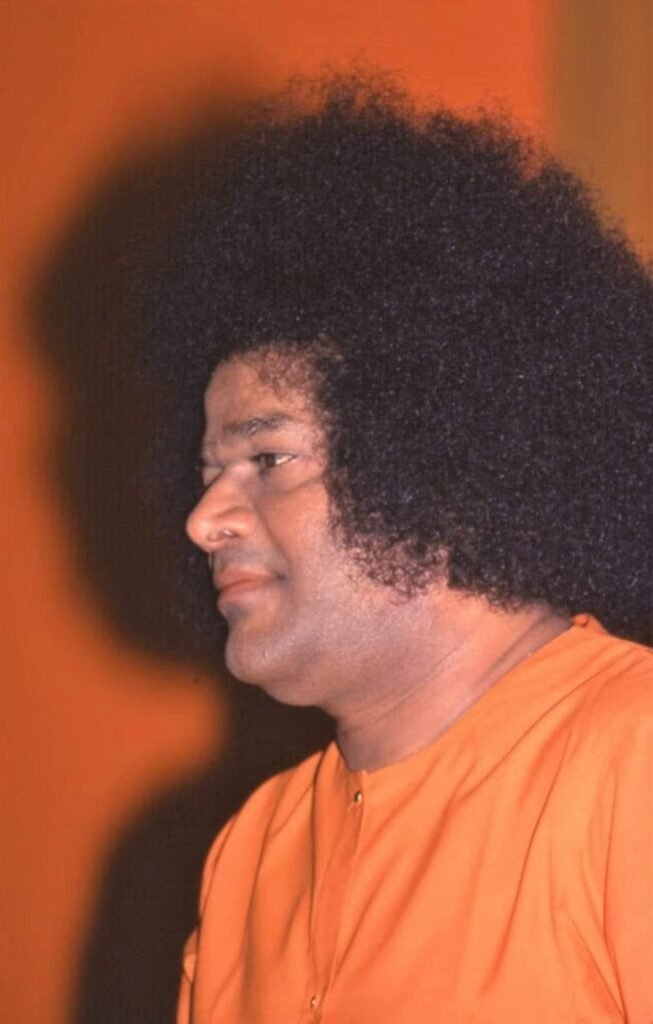
SAI:┬ĀHislop goes to sleep in Bombay. He dreams that he is born in California, and he lives through 65 years of life. Yet this entire 65 years takes only two minutes of clock time. Hislop has gone to sleep in Bombay, but, the Bombay body is left behind. This is proof that Hislop is not that body. To the┬Ājnani┬Ā(Wise man), who has wakened to wisdom, 65 years of ‘waking life’ is just a moment-like the dream to Hislop.
H:┬ĀWhat is this present moment?
SAI:┬ĀGod is omnipresent. He is the ever present. This moment is God. There is only God.┬ĀTruth is the same in the past, in the present, and it will remain the same in the future.Therefore, the time sequence of past, present, future is just imagination. But ‘I’ am timeless, beyond time. ‘I’ look at past, present, future; they are not me.
Of course, past, present and future must be taken into account in daily affairs. These two aspects of time must be mixed and in operation at the same time. The perception that the time sequence is only imagination that ‘I’ am timeless and beyond time, both should be there at the very moment that one is using the time sequence in his daily affairs.
H:┬ĀIn terms of the unreality of time, how are we to experience past, present, future?
SAI:┬ĀMan has two eyes; he sees only past and present. God has three eyes. God’s eyes are spiritual. He sees in front, behind, above and below. Like the garland pulled over the finger ŌĆō the finger is the present and it is in touch with past and future. God is the present. He is omnipresent. As Baba looks at people, he sees the past, the present moment, and the future, and everywhere in every direction.
CONVERSATIONS WITH SAI – Part Nineteen
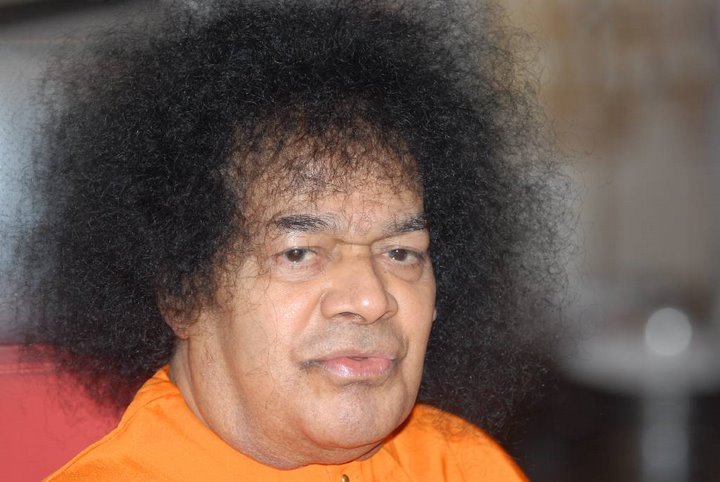
Visitor:┬ĀI look at Swami’s photograph on my desk at home in my country. And I receive Swami’s instructions. He ordered me to come to India for this Conference.
SAI:┬ĀYou think of Sai and get some feeling.
Visitor:┬ĀI look at Swami’s photograph and send Him questions and problems from other people, and I receive His orders and instructions for those people. Is that all right?
SAI:┬ĀNo. It is not all right. For yourself you may ask. But you should not think of placing yourself between a devotee and Sai. That is a wrong idea.
THE 16 FACTORS OF THE AVATAR
A┬ĀVisitor:┬ĀWhat are the 16 points of the Avathar? I have asked and nobody knows.
SAI:The difference between man and Avathar? Man experiences the 15 factors, but he is not their master. They go their own ways. As control starts to be gained, man comes closer to the 16th, the all-knowing┬ĀParamatma┬Ā(supreme self). The five working organs have to do with talking, taking, walking, rejecting (excretion), and eating. The five sense organs: hearing, touch, sight, taste, smell. The five elements: earth, water, fire, air, space. The 16th factor is the all-knowing┬ĀParamatma.
THE SIGNIFICANCE OF BREAKING COCONUTS
H:┬ĀOne sees people breaking coconuts in front of Swami’s car as He is departing from Prasanthi Nilayam or Brindavan.What is the significance of this?
SAI:┬ĀAs long as there is water, meaning worldly desire, in the nut, and as long as the meat clings to the shell, the nut will grow if planted. As the unplanted nut ages, the water disappears, the meat leaves the shell, and the nut will not grow. The nut is chosen as a symbol because of the three eyes – the two physical eyes and the eye of wisdom (unopened).┬ĀWhen the nut is broken, it symbolizes breaking the closed heart and asking the Lord to take the contents. This is ‘surrender’.┬ĀNothing inside can be concealed and, once the nut is broken, it will never grow again.
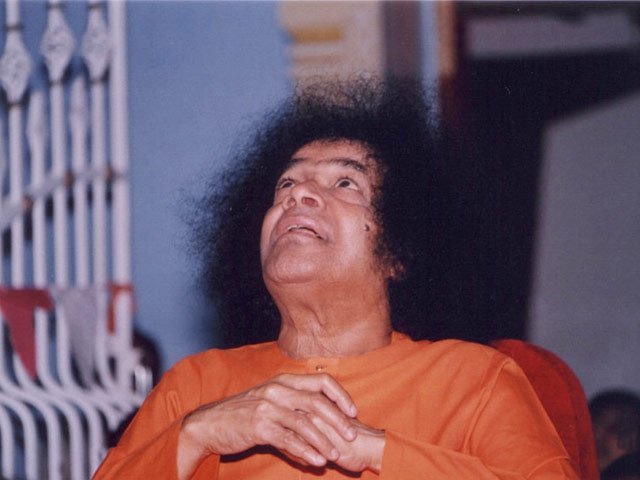
SAI:┬ĀMr. ‘X’ is a great scholar with various degrees and a lifetime of┬Āsadhana┬Āin the Himalayas and elsewhere.
H:┬ĀI suppose degrees are O.K., but the only scholarship of interest to this individual is scholarship in Swami’s teachings. It is like locating the greatest deposit of gold in the world. Why work at anything else?
SAI:┬ĀThe mention of gold is important. Deposits of gold are not limited to one place in the world, but gold is found only by certain individuals.┬ĀGod is not limited to one place only. He is everywhere and He may be found at any place by those who are pure of heart. And by that I mean where there is love in the heart.
H:┬ĀNo doubt gold is in every place, but great treasures of gold are seldom found. It is the same with great springs of water. In Baba, one finds the spring of divine sweetness.
SAI:┬ĀWaters from springs are often impure. Pure water may be found by digging for it. One person may dig 100 feet and another person may find pure water at 40 feet or at 10 feet. It is the same in the spiritual life. The amount of work needed to find the divine sweetness depends on purity of heart.
H:┬ĀIs it only by the strength of one’s love for God that he comes to union with God, or are there other essential factors?
SAI:┬ĀThe most beneficial thing that can happen to a person is that he should draw God’s love to himself. His love for God is of less importance, because it is an imperfect mixture of divine and worldly love. The most important action to gain God’s love is righteousness, dharma.┬ĀSpread out on a flat surface there may be gold, silver, copper, iron filings, diamonds, rubies, silks and other things of value, but a magnet pays no attention to all the riches; it selects only the iron filings. It is the same with devotees. God does not select on the basis of wealth. He looks to the purity of heart.

SAI:┬ĀWhen two people face each other, each enters the eye of the other, and they are different only in name and form. Otherwise, they are the same.┬ĀSo, it is important to face God directly and be one with Him. That is why one naturally closes the eyes in a temple, so as to use the eye of wisdom instead of the physical eyes.
A┬ĀVisitor:┬ĀThe word,┬Ā‘sadhana’┬Āis used in so many different places.
SAI:Sadhana is just replacement of the bad tendencies of the mind by the divine attributes of the Atma. Mind has two principal bad characteristics: its tendency not to go straight, but to move obliquely; and its tendency to desire and grasp all objects that it sees. It is compared to the snake, which moves by twisting and bites all it sees. The mind must go straight to God by facing Him directly.
WE ARE TRULY FEARLESS
H:┬ĀBaba says, ‘Why fear when I am here’. That must have a wide and deep meaning. Will Baba speak of it?
SAI:┬Ā‘I am,’ refers to the Atma, who is always everywhere. The Atma is like the lion, without fear. ‘Fear’, refers to the body, which is subject to worry, depression, trembling and fear. Body is like a sheep, wavering this way and that way. Body is always looking for information, gathering information, questioning. Whereas Atma, like the lion, is full of courage and without fear. ‘Atma’ is God. You are God. God is omnipresent. This ‘I’ is you. That ‘I’ is you. You are all.
A┬ĀVisitor:┬ĀWhat is┬Ā‘Jnana’?
SAI:┬ĀJnana┬Āis ordinary knowledge, knowledge about living in the world. Special knowledge is wisdom.┬ĀLove is giving and forgiving. Selfishness is getting and forgetting. Love is expansion, and selfishness is contraction.
OUR ATTITUDE TO THE OPPOSITES – ŌĆśGOODŌĆÖ AND ŌĆśBADŌĆÖ
A┬ĀVisitor:┬ĀI see evil on all sides and am puzzled.
SAI:┬ĀHere is this banana. The skin is useless to us, so it is regarded as bad. But, if there were no skin, the inside would not be protected. Do not regard anything as bad.┬ĀIf a person has done evil to you and you take it as evil and retaliate, then you also have become bad. But, by remaining good and not regarding others as evil, you gain the right to reform them. If there is a bad smell in the room, and if incense is lighted, the fragrance changes the smell of the room. Bad actions should be met with good deeds and a good viewpoint, and the evil will be changed.┬ĀThe difference between good and bad is a function of time. Food when eaten is good. In time that same food undergoes a change, is excreted, and is called bad. Whereas, truth remains the same and does not change with the passage of time. Therefore, the time sequence is just imagination.
H:┬ĀThe thought arises that some persons are wholly bad, their crimes are so vicious.


